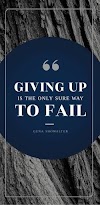Daud Musbaudeen writes,
Destiny, as they say, can never be altered. Whatever will happen to us is eventual, irrespective of what we do. Fate is inevitable. A man must learn to accept his fate and build a resilient trait, that no matter how much he fails, he would still rise back like a phoenix in the ashes.
We often think we can manipulate everything. However, when destiny designs our success or otherwise, no one can change it. Our fate is our cross to bear.
This belief makes me ponder on an old, terrifying story. There was a man called Musbaudeen. He was the most influential individual in his society. He had everything any man could dream of, but his childlessness put him in a direful position.
One fateful day, Musbaudeen had a terrible dream. Thus, he summoned his priest. The old mouthpiece of the gods prophesied that he would have a male child but harbingered that the same child would kill him. Thus, he advised him to stay away from his wife for three months. However, Musbaudeen, whose eagerness to have a child blazed like fueled flames, dismissed the counsel on a whim. He thought he could forestall the impending calamity if he kept his son far away from him, even if it meant sending him abroad. As Misbaudeen was a man of substance, everyone believed he had finally remedied the situation by sending his son, Yusuf, abroad upon clocking sixteen.
At twenty-five, Yusuf was deported home unbeknownst to his father. In search of adventures to sustain his new, wrecked life, he later became a member of a ruthless gang of robbers. And as fate had it, Misbaudeen, being one of the wealthiest men in town, became the gang's target. After strategising, they hit him with an unannounced visit. They robbed him of his belongings and killed him, and neither father nor son knew who each other was.
The story illustrates the saying thus, "whatever would hit you, would never miss you", as there is no remedy to the dictates of destiny.
Daud Musbaudeen writes for PEN PRESS UDUS. He studies Literature-in-English in the Department of Modern European Languages and Linguistics.






0 Comments